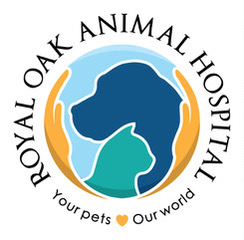Library
-
Psittacine beak and feather disease (PBFD) is a serious condition in parrot species for which there is no cure. The highly contagious virus attacks fast-growing epithelial cells, commonly causing visibly abnormal formations of the beak and/or feather follicles. The clinical signs vary depending on the species of bird and the age at which it was infected. Diagnostic testing is available and precautions must be taken when purchasing a new bird.
-
Pyrantel pamoate is given by mouth and is used on and off label to treat intestinal parasites in many species. Give as directed. Side effects are uncommon but may include stomach upset, such as vomiting or diarrhea. Do not use in pets that are allergic to it. If a negative reaction occurs, call your veterinarian.
-
Quaker parrots are small- to medium-sized birds. They are green with a grey chest and neck. They make great pets if hand-tamed. Quaker parrots can be excellent talkers and tend to bond closely to one or two household members.
-
In the wild, a bird will try to uphold a strong appearance when sick. By the time a pet bird begins to display symptoms of illness, it has likely been sick for several days to weeks. Many things contribute to ill health. This handout provides bird owners with a list of signs that will alert them that their bird is sick.
-
Respiratory disease is common in birds and can be caused by infection with bacteria, fungus, or parasites; by exposure to aerosolized toxins or environmental irritants; or by pressure on the respiratory tract from enlarged organs or tumors. Birds can have varying signs, such as coughing, sneezing, ocular or nasal discharge, or difficulty breathing. Any bird showing respiratory tract signs should be examined and tested by a veterinarian as soon as possible. Over-the-counter medications from pet stores are not recommended for treating sick birds.
-
Ronidazole is an antiprotozoal, antiparasitic medication given by mouth and is used off label to treat Tritrichomonas infections in cats and pet birds, and to treat giardia in dogs and cats. Ronidazole is given by mouth in the form of a capsule or liquid.
-
Do you have medications stored in the bathroom cabinet, kitchen drawer, and pantry shelf? Are random bottles haphazardly tossed into the “pharmacy”? Medications are meant to help us and our pets, but they can do more harm than good if stored or administered incorrectly. You can protect your family and pets by safely handling and disposing of medications.
-
Seizures are reasonably common in pet birds and should be treated as a medical emergency. Species that are often affected include Amazon parrots, African grey parrots, budgies, canaries, cockatiels, finches, and lovebirds. There are several possible causes of seizures in birds. Diagnostic testing is often required so that your veterinarian can diagnose the problem and determine the necessary treatment plan.
-
Senegal parrots are small- to medium-sized birds. They are generally very friendly and are very adept at mimicking household sounds like the microwave or telephone. They generally bond with one to three household members.
-
Ophthalmic autologous serum is a blood-derived product used to treat corneal ulcers in animals. Ophthalmic autologous serum is part of the blood and is collected directly from the patient. It is in liquid form.


